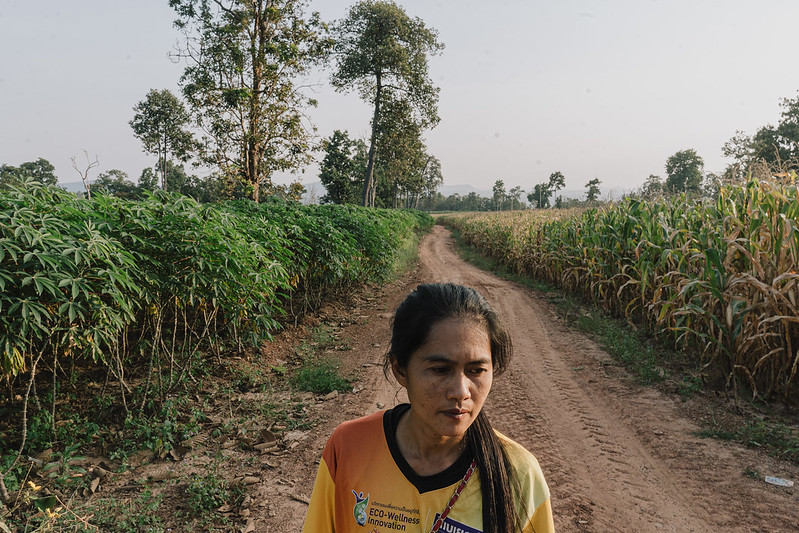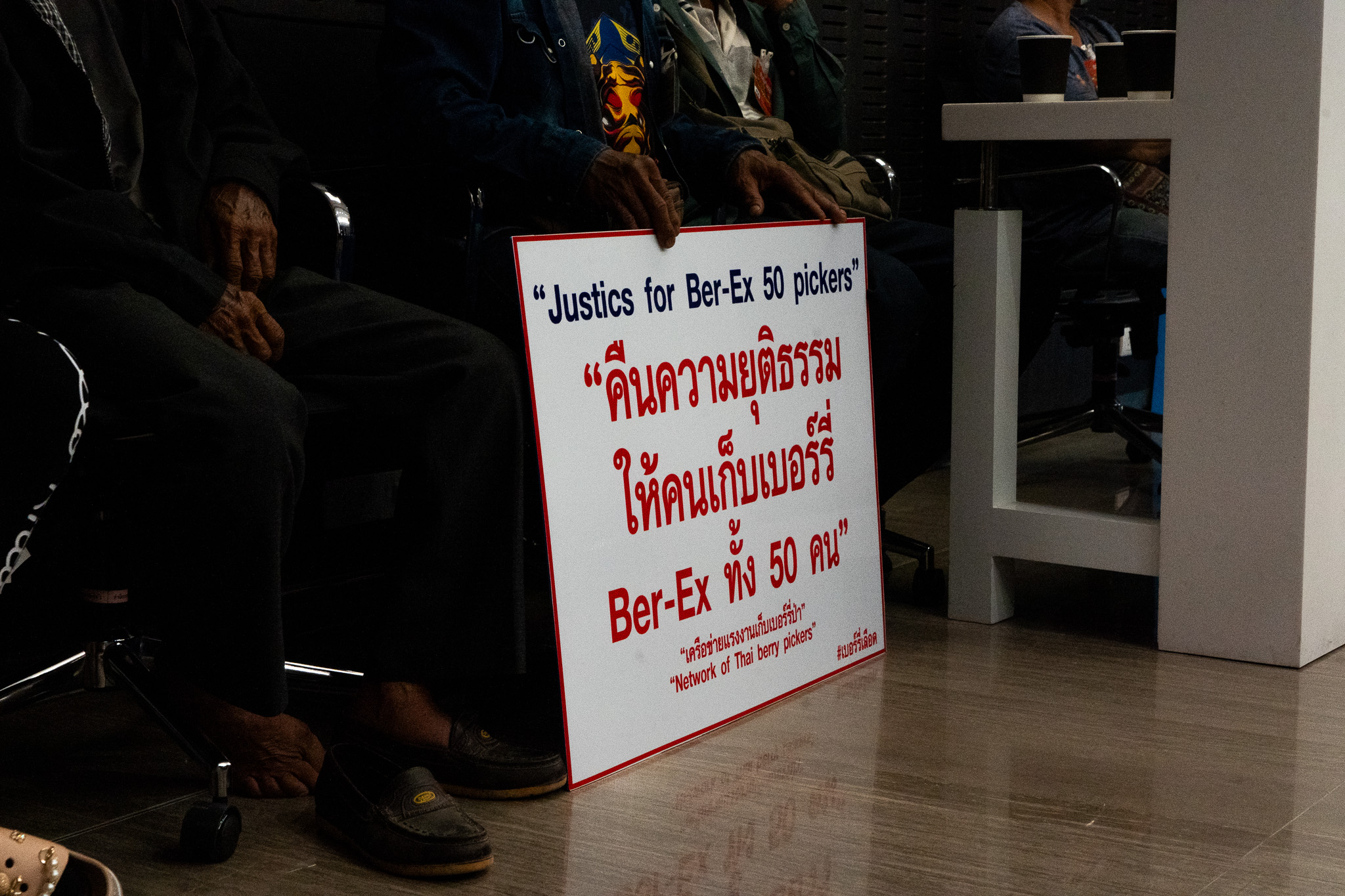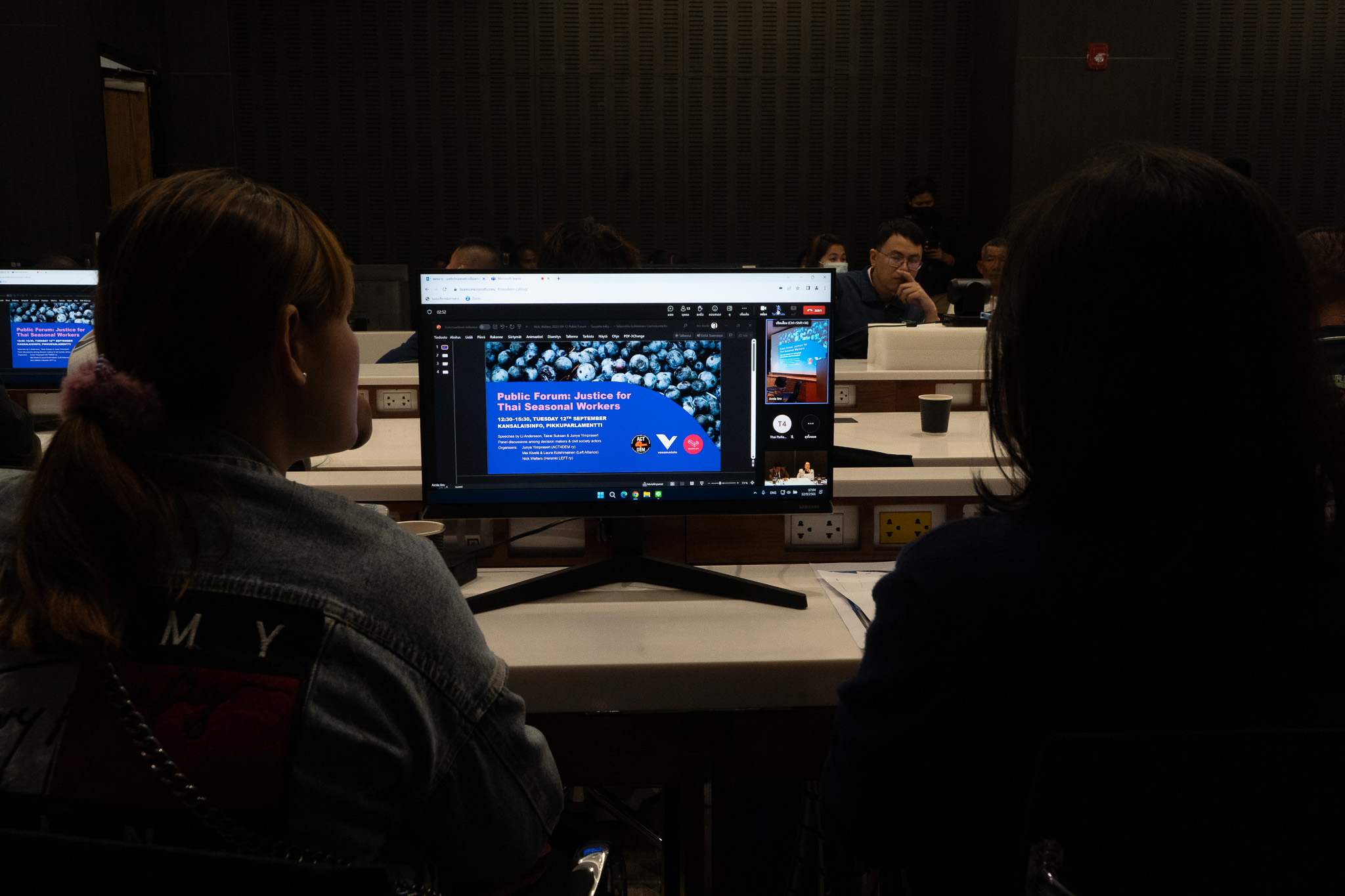Guest contribution by Abigail Horner
Padoongwit Pimnisai, also known as Kim, has been in a relationship with his partner, Pongsatorn Chantakham, for seven years. The 34-year-old restaurant owner often pictures the day he will finally be able to say “I do” to his partner, who he has been living with nearly since they began dating.
The two imagine a small, intimate wedding where invited are only the close friends and family who support their same-sex relationship. They dream of a wedding set in Kim’s parental home in Kalasin province, a traditional Isaan wedding ceremony in Phutai costumes to reflect Kim’s ethnic identity.
“Once in this lifetime, I want to have that kind of moment,” Kim says when asked why he wants to get married.
The young gay couple at present can only hope. Their dream of a wedding day is only that: a dream.
But with a proposed civil union law, Thailand could become the first Southeast Asian country to allow same-sex couples to be legally wedded. Kim hopes that the new law would give him and his partner the same rights straight couples receive when they get married.

Kim (right) works six days a week running a restaurant in Khon Kaen. His partner, Pongsatorn, works long hours at a local mall. When free, their favorite thing to do is to travel. Their latest trip took them to Singapore in November 2018. (Photo by Kim)
Steps towards equality
The proposed bill was passed by the interim cabinet in 2018, but no law will be passed until the new government is formed following the March election. Successive Thai governments have been making steady, if slow, progress in terms of LGBT+ rights, and the civil union law is yet another incremental step in the direction of gender equality.
Thailand removed homosexuality from the pathologized diseases list in 2002, a concrete beginning to the de-stigmatization of the LGBT+ community.
In 2005, Bangkok held its first international conference on LGBT+ communities in Asia.
In 2012, a court forced the Thai military to no longer require LGBT+ people to have their sexuality diagnosed as a mental disorder — permanently scarring their health records — that automatically exempted them from conscription. Now, they are merely recorded as “mentally unfit for military service,” a designation that is less likely to hurt their future career prospects.
In the last ten years, Thailand has committed to and passed anti-discrimination legislation which addresses all LGBT+ individuals. It has even committed to signing a resolution regarding the issue along with 85 other member countries proposed by the UN.
Even though Thailand has made positive steps to improve the livelihood of LGBT+ people, some aspects are still disregarded. For example, so-called “conversion therapy” is still common. LGBT+ individuals are also effectively banned from donating blood.
The civil union law and the public
Thai society is often seen as very tolerant towards the LGBT+ community. But Surasak Glahan, an editor at the Bangkok Post, said in an interview that this tolerance is not to be confused with acceptance.
“We may treat them well, but when there is a call to [grant equal] rights, the public is reluctant,” Surasak says.
LGBT+ activists have been split over the benefits of a civil union law, according to Surasak. One group has been supportive of the law while another group criticizes that the bill, saying it reinforces the notion that LGBT+ people are second-class citizens. Since the law does not grant same-sex couples the same rights enjoyed by heterosexual couples, these critics fear that once enshrined in the law, it will actually be a setback in the fight for equality.
“This civil union law is a half-baked version of what activists among the LGBT+ community proposed and wanted,” Surasak says.“They asked for something different, they asked for the full rights granted to men and women when they get married.”
Tanwarin Sukkhapisit, Thailand’s first transgender parliamentarian, is also critical of the proposed law.
“[Gender equality] is one thing that [the law] will definitely not achieve,” she argues. “Why create a separate marriage law for LGBT+ when we could just amend existing marriage laws to apply to all persons regardless of gender and sexuality?”
The proposed law gives access to inheritance rights for civil partners, as well as rights to the partner regarding medical and insurance benefits. But the civil union law lacks one crucial right that LGBT+ activists have long pushed for: the right to parenthood, whether the same-sex couple having their own children, adopt, or even legally co-parent.
Tanwarin and her fellow Future Forward Party MPs are seeking to amend Section 1448 of the Marriage Act, which currently defines marriage only as a legal union between a man and a woman. They argue that the law as it stands is unconstitutional, since the constitution states that all Thai citizens are entitled to equal rights before the law.
LGBT+ realities
Kim and his partner are ready to begin the next chapter of their lives through marriage. But not all gay men are wanting or even considering marriage. This decision is dependent on a combination past experiences, current realities, and beliefs toward relationships as well as a general view about the way individuals within same-sex marriages want to live their lives.
Tepparit Upara, an Udon Thani native who goes by Dan, was sixteen years old when a friend had joined his family for breakfast before school. “Oh, Dan. Is this your friend?” his mother asked. To the horror of everyone at the table, his friend answered, “No. I’m his boyfriend.”
A stunned silence. Dan had been outed.
His father, then an army drill sergeant, stormed off to the backyard. Dan can remember hearing his father angrily chopping away at the food on his plate there, and then “shamefully avoiding eye-contact with me”.
Now 20 years old and in his second year of studying English at Khon Kaen University, Dan recalls one night when he received a call from his father who was out drinking with colleagues.
“Dan,” his father said, “I have someone here you might be interested in. He’s a nice guy–and handsome!” His father handed the phone off to the young man and the two of them share some words.
For Dan, it was one of the happiest days in his life. His father was not only no longer angry and hurt, but he seemed to be embracing his son for who he really was.

Dan, outside his dorm close to Khon Kaen University where he shares a room with an American exchange student.
Dan’s mom, a police officer, expressed her love and appreciation of Dan and the person he is. When Dan first came out, she was worried about him being bullied at school, or never finding love. But these last few years have showed her that her son coming out was the best thing to happen to him, since he now truly feels himself and empowered in his sexuality.
For many others in Thailand though, Dan and Kim would appear to be the lucky ones.
Toon (not his real name), grew up in Nong Khai before moving to Khon Kaen. He knew he was gay since elementary school. Yet, he was always at pains for others to perceive him as “normal.”
“I knew I was different, but I didn’t want to be,” he said.
Now 36, Toon has not shared his sexual identity with his family or his wider social circle. He is afraid that his ultimate fear will come true: that people will think he is different and treat him differently. He has only come out to a few trustworthy friends who have become like a family to him since he graduated from university.
Toon believes that Thailand is not completely open to LGBT+ people. He argues that society tends to only accept LGBT+ people with decent professional skills, especially celebrities, comedians, and entertainers, as if they have to overcompensate for being LGBT+ in order to justify their existence. Leadership positions and other prominent roles in society are mostly off-limits to them.
Toon is excited for the proposed civil union law, seeing it as a step forward for Thailand’s LGBT+ community. Personally though, he does not want to be in a formal relationship, let alone get married.
“I don’t want other people to know I have a partner,” Toon says, or “for people to find out that I am gay through that. I decided that it would be too much of a headache.”
Somewhere over the rainbow
Dan dreams of the day he can get married to his partner, having a house with garden and kids playing outside.
Kim and his partner are eager to be wed in a civil union so they can have legal recognition and benefits as a couple. The young couple wants to get married, especially after being together for seven years, but for practical reasons, such as improved access to healthcare as a legally married couple, as much as for love.
The fate of the proposed civil union law now lies in the hands of the as-yet-unknown new government. But many in the LGBT+ community and their supporters are hopeful that the proposed civil union law can be another step for Thai society to become more inclusive and equal.
Despite her misgivings about the bill, party-list MP Tanwarin remains positive about the effort.
“The making of the civil union bill showed me that we have so many allies in all areas of society, including those who work in government, who can see that there is a problem,” she says.
“They are making an effort to make things fairer even if they might not themselves be directly affected. This is very heartening.”
Abigail Horner is a student of Community and Nonprofit Leadership at the University of Wisconsin-Madison. This past semester, she studied about human rights issues and development in Khon Kaen.




